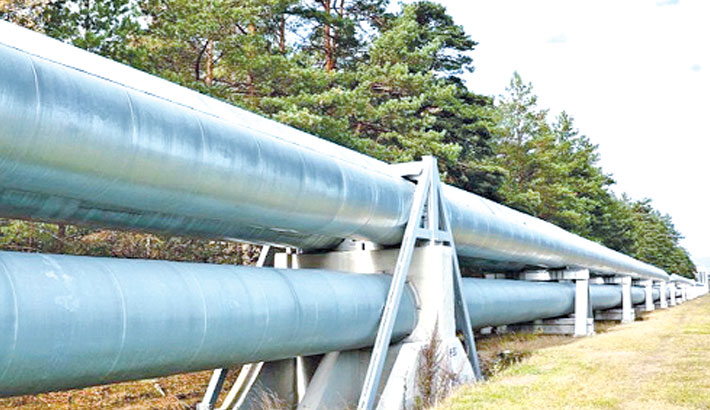By Vineet Dikshit
NewsGate Press Network
On Saturday the 18th of March 2023, the second high speed diesel pipeline between India and Bangladesh was inaugurated by bringing the two neighbours more closer than ever before.
Done remotely or via the virtual mode, the Prime Minister Narendra Modi and premier of Bangladesh Sheikh Hasina this pipeline will ship 1 Million Metric Ton Per Annum (MMTPA) of High-Speed Diesel (HSD) to the to seven districts in northern Bangladesh from India’s Numaligarh Refinery.
The foundation stone for the construction of this pipeline was laid by both Prime Ministers in September 2018.
Numaligarh Refinery Limited has been supplying petroleum products to Bangladesh since 2015. This is the second cross-border energy pipeline between India and its neighbours.
This is the first cross-border energy pipeline between India and Bangladesh, built at an estimated cost of Rs 377 crore, of which the Bangladesh portion of the pipeline was built at a cost of approx. Rs 285 crore, which has been borne by the Govt of India under grant assistance, read Prime Minister’s Office press release.
“In the last few years, under the able leadership of PM Sheikh Hasina, Bangladesh has made remarkable progress. Every Indian is proud of that & we’re delighted that we’ve been able to contribute to this development journey of Bangladesh,” said PMModi at the inauguration of the pipeline.
This pipeline will carry diesel from Assam-based Numaligarh Refinery Ltd’s (NRL) marketing terminal at Siliguri in West Bengal to the Parbatipur depot of Bangladesh Petroleum Corporation (BPC).
And would help provide a stable supply of diesel in all 16 northern districts under Rangpur and Rajshahi in Bangladesh. It will ensure fast-paced delivery of fuel at a minimum cost. Currently, imported diesel are supplied to these regions via wagons and trawlers from the Chattogram and Mongla ports.
The project is jointly implemented by the Numaligarh Refinery Limited of India and Meghna Petroleum Limited of Bangladesh.
It costs around USD 8 for each barrel of fuel to be transported from the port city. The pipeline would reduce the cost to around USD 5 per barrel. It will also reduce the transportation time to just one hour as opposed to the current situation of taking several days to transport diesel via wagons and trawlers.


Comments are closed for this post.